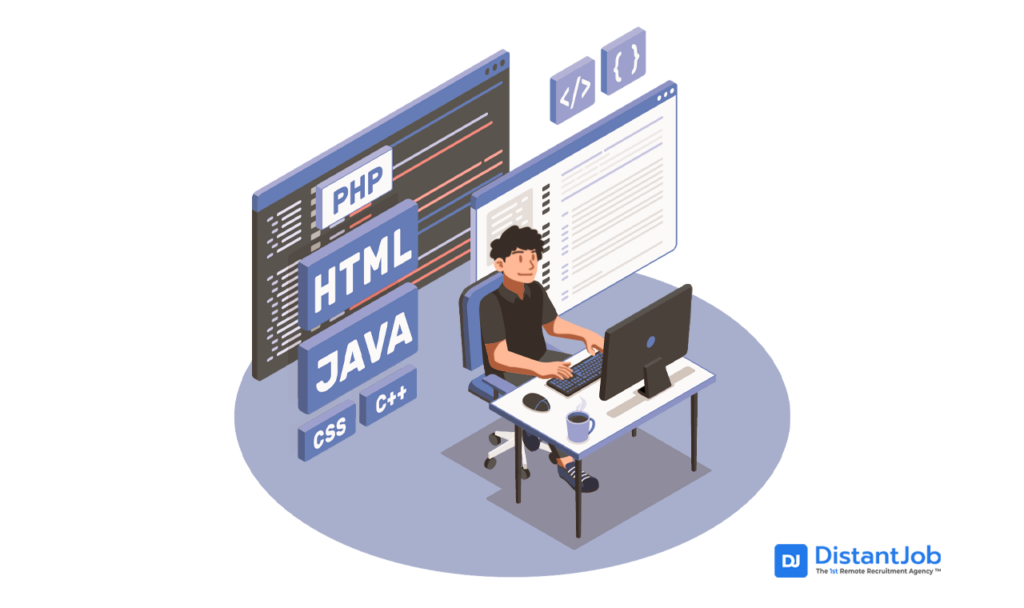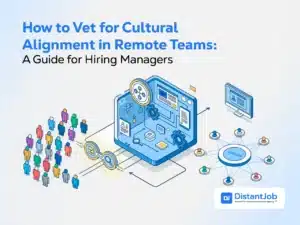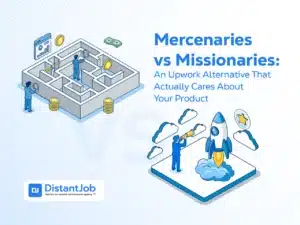The FinTech industry is booming and expected to grow in the next few years. In fact, in 2020, the global FinTech market size was valued at a massive $110.57 billion; by 2030, it’s predicted to reach $698.48 billion.
Now, we know that as a business owner, you wear a lot of hats. But it’s probably a good idea to hire a FinTech developer to create the product or service for you. After all, you want to guarantee it’s done properly and meets regulatory and security standards, right?
Plus, having a developer on your team that’s specialized in FinTech can save you time and help you avoid those dreaded, costly mistakes such as compliance violations or even security breaches.
But where do you start? How do you find the right person for the job? In this complete guide, we’ll answer all of these questions and more. Let’s get started.
Best Practices for Hiring FinTech Developers
Here are our best practice tips and tricks to help you find and hire the right person for your company.
1. Understand the role of a FinTech developer
First things first, you’re going to need to understand what the role entails. This will help you find the right person with the skills and experience you need for your project.
Essentially, a FinTech developer is a professional who builds and maintains digital solutions for the financial industry. These solutions can be any finance-related tech, including mobile banking apps, online payment systems, and more.
Important tasks in financial tech development roles also include:
- Coding – FinTech developers write the software that powers your FinTech product using programming languages such as Java, Python, or C++. The code must be clean and efficient to guarantee the product runs smoothly. So, you’ll need to look for people with a good amount of experience in coding with these programs.
- Testing – A developer skilled in financial technology has to make sure the software they’ve coded works how they wanted it to. To do this, they run different tests to find and fix any bugs or issues.
- Security – FinTech developers should guarantee that the product is secure and follows regulations. They should also know how to implement encryption and other security measures to protect sensitive financial data.
- UX – Developers should be in-the-know about user experience and able to share stats and ideas about how to make your product as user-friendly and intuitive as possible. As financial concepts are often complex, it’s crucial that they translate these concepts into applications that users feel confident navigating.
Understanding the important qualities that make up any role helps you find the best person for the job. The tasks above should give you an initial idea, but remember to also consider your team’s specific dynamics and needs to help you find the best candidate.
In particular, don’t forget to focus on the soft skills that are also crucial to any FinTech developer role. For example, problem-solving, communication, adaptability, and critical thinking are all vital to encourage teamwork and continuous growth.
2. Identify your company’s needs

Next, you need to start thinking about what your company needs. This part is super important because it’s all about figuring out what kind of FinTech developer is going to fit best with what you’re doing.
To do this, you will want to take a step back and consider the nature of your business. Who are your customers? What problems do they face? How can a FinTech solution help solve those problems?
If you’re a company that works with nonprofit organizations, then you’ll want a developer who’s no stranger to fundraising and donation software. Someone who’s been there, done that, and knows exactly what NGOs need.
Or, maybe you’re a SaaS company that wants to build a payment app. In that case, your ideal app developer should have experience working with subscription-based models and integrating payment gateways.
So, take a moment to really think about what you want your company to do and who you serve. That way, when you’re on the hunt for a FinTech developer, you’ll know precisely what skills and experience to look for.
3. Where to find FinTech Talent
By now, you should have a pretty good idea of what you’re looking for in a developer. But where do you find a great one?
You mostly have two options:
- Tech job boards: These are tech platforms that connect companies searching for pros with a specific skill set to potential candidates. Some popular examples are LinkedIn, Indeed, and Glassdoor, but you can also use job boards tailored to FinTech and finance roles and optimized for relevant keywords. You can post job listings, search for candidates based on specific criteria, and reach out directly to potential hires.
- Tech recruitment agencies: This is absolutely our top choice for finding FinTech talent. Elite FinTech talent is notoriously hard to find – but not when you have the right partner. At DistantJob, we specialize in direct hiring of top developers who become permanent members of your team, not just temporary contractors. Our rigorous vetting process and extensive tech network ensure you get Silicon Valley quality talent in just 14 days, backed by our day money-back guarantee.
4. How to screen and shortlist candidates

You’ve got a stack of applications and recommendations from your recruiting agents. Now, it’s time to start screening and shortlisting them.
If you’ve got a recruitment agency on your side, they’ve likely done some digging already, but it’s up to you to make sure you’re bringing in the right pros for interviews. Here’s how you do that:
- Hit those resumes and portfolios: Look for FinTech experience that matches what you need. Pay close attention to the projects they’ve tackled, especially ones similar to your company’s needs.
- Check technical skills: Throw some coding challenges or technical tests their way. This isn’t just about seeing if they can code – it’s about how they tackle problems and handle the tough stuff. Plus, it gives you a peek at their practical skills.
- Shortlist the best candidates: Once you’ve put them through the wringer, it’s time to narrow it down. Pick out the top contenders who tick all your boxes. These are the ones you want to invite to the next round of interviews.
5. Interviewing FinTech developers and making a final decision
Congratulations! You’ve sifted through those applications and found some promising candidates. Now it’s time for the interviews. This is your chance to really get to know the people who might be joining your team.
To do this, ask them a mix of technical and behavioral questions.
When it comes to the techie questions, ask about their past projects and how they tackled tricky problems. For example:
- Can you tell me about a FinTech project you’ve been a part of? What hurdles did you face, and how did you overcome them?
- What programming languages and tools do you rock at? How have you put them to work in your previous gigs?
- How do you ensure the FinTech solutions you develop are safe and follow the rules?
Behavioral questions are key, too. Just because someone’s a whiz at FinTech doesn’t mean they’ll fit in well with your existing staff. Here are some good starting points:
- Have you ever been in a tight spot on a team project? How did you handle it?
- When deadlines are looming, and stress is high, how do you keep your cool?
- What keeps you fired up about your work, especially on those marathon projects?
6. Onboarding and retaining top talent
Here’s a not-so-fun fact for you. Gallup found that 1 in 2 employees are open to leaving their company. This shows you just how important it is not only to hire the right person but also to retain them. You do this in two ways:
- Onboarding them properly: Starting on the right foot is key. Proper onboarding means your new FinTech developer feels welcomed and ready to shine. So, give them a thorough introduction to your company, its culture, and their role within it. Clear communication, access to resources, and support from mentors or colleagues can make all the difference in helping them settle in.
- Putting retention strategies in place: Once they’re onboard, you now have to think about keeping them happy, engaged, and motivated. This is all about understanding their needs and giving them opportunities for growth and development. Plus, it’s about making sure they have a good work-life balance and support for their mental wellbeing.
That same Gallup study found that greater work-life balance (68%) and significant increases in income and/or benefits packages (58%) were top priorities for employees.
So, consider what perks you can offer, such as flexible hours, competitive pay, and bonuses. By showing your FinTech developers that you value and support them, you’ll create an environment where they want to stick around for the long haul.
Final thoughts
So there you have it—our complete guide to finding and hiring the best FinTech developers for your company, packed with all the important information and steps you need to take to get started.
Remember, finding the right developer is vital to building a FinTech product that people rave about. So, take the time to understand your company’s needs, explore different avenues for finding talent, and don’t be afraid to ask for help from tech recruitment agencies.
With the tips and strategies we’ve shared in this guide, you’re well on your way to putting together a dream team of FinTech pros who can turn your vision into reality. And, if you still want a bit of help getting out there, share your requirements and contact a DistantJob’s recruitment specialist to save time, reduce costs and make it happen! We will find you a candidate passionately focused on delivering creative improvements for your business, who possesses excellent English skills, is experienced with remote work, and is located in time zones that align with your US business hours. And if your new hire doesn’t meet expectations within the first 90 days, we’ll find a replacement at no additional cost.





